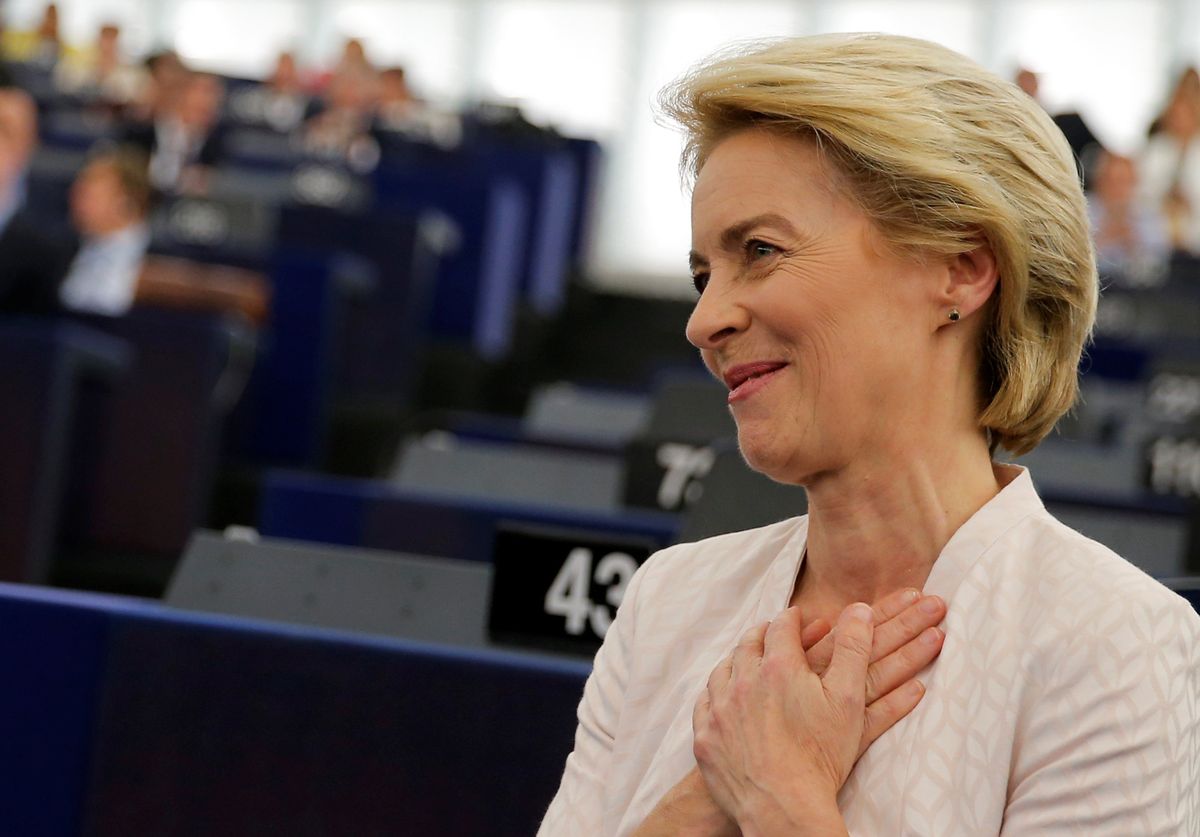Kevin Allison is a Senior Editor for Signal. Based in Washington DC, he looks at how technology is reshaping global affairs. Kevin is also a Director in the Geo-Technology practice at Eurasia Group. Kevin holds degrees from the University of Missouri and from Harvard's Kennedy School of Government. He was also a Fulbright Scholar in Vienna, Austria and a 2015 Miller Journalism Fellow at the Santa Fe Institute. Prior to GZERO Media and Eurasia Group, Kevin was a journalist at Reuters and the Financial Times. He has lived in eight US states and has been an expat four times.
Europe has selected a new president of the European Commission. Last night, German Defense Minister Ursula von der Leyen won support from a majority of members of European Parliament to lead the executive body that shapes policy for the world's largest economic bloc. The final result was a close shave, however — she won by a margin of just nine votes out of 757 — and there's something in the outcome for everyone to hate.
For many anti-EU populists, von der Leyen's appointment confirms their view that the EU is undemocratic and doesn't respect ordinary citizens. Why? Because she wasn't selected by the voters who went to the polls in the recent EU parliamentary elections — or even indirectly by the lawmakers who won those seats. She was hand-picked by leaders of the 28 EU member states, who side-stepped parliament after better-known candidates chosen by various political factions within the legislature failed to attract enough support from the national governments. Anti-EU politicians like France's Marine Le Pen will spend the next five years reminding us that von der Leyen's presidency reflects everything that's wrong with Brussels.
For Angela Merkel, Emmanuel Macron, and other European leaders who backed von der Leyen, her narrow margin of approval gives her a weak mandate as she confronts huge challenges such as the EU's fraught relations with the US and China, showdowns over Italy's budget, erosion of the rule of law in Hungary and Poland, the economic and political fallout of the UK's exit (or not) from the bloc, and the EU's drive to regulate Big Tech.
Von der Leyen herself, who is from the center-right, made significant concessions to get her nomination through with parties that are deeply suspicious of her. Those included a promise to propose a so-called "green deal" within her first 100 days in office, reform the minimum wage, and launch a push for EU-wide legislation on artificial intelligence. Von der Leyen also pledged to reform the process for selecting future candidates for Commission president and to give the EU Parliament a "stronger role in shaping and designing" the EU's future. Now that von der Leyen has secured the closest thing the EU has to a top job, she'll be spending much of her political capital trying to deliver on those promises.





